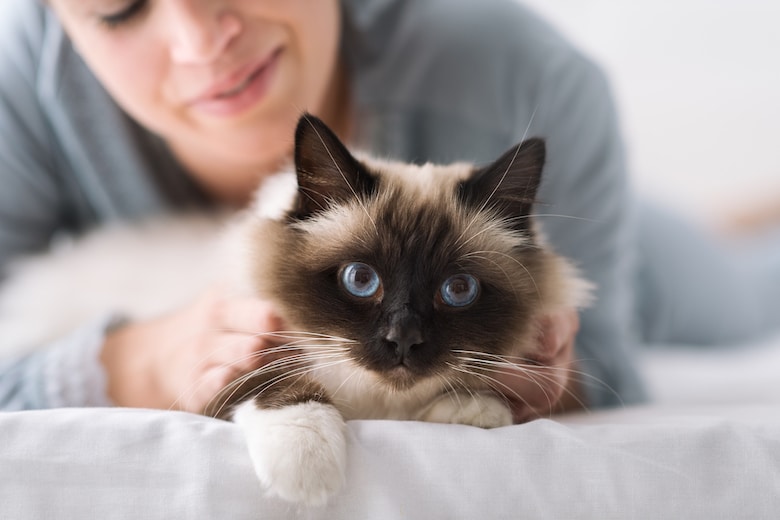That Purr Doesn’t Mean Your Cat Is Happy
The post That Purr Doesn’t Mean Your Cat Is Happy by Sassafras Lowrey appeared first on Catster. Copying over entire articles infringes on copyright laws. You may not be aware of it, but all of these articles were assigned, contracted and paid for, so they aren't considered public domain. However, we appreciate that you like the article and would love it if you continued sharing just the first paragraph of an article, then linking out to the rest of the piece on Catster.com.
What if everything we think we know about purring is wrong? Most of us assume that our cats purr because they are happy, but this isn’t always the case. In fact, cats purr for a variety of reasons and in a variety of situations. It’s important for your cat’s emotional well-being to not assume that because your cat is purring they are happy.
Why do cats purr?
Cats purr for a variety of reasons. Tory Waxman, DVM, a small-animal veterinarian and co-founder of human-grade dog food brand Sundays, explains that “cats purr not only when they are content but can also purr when they are afraid or nervous.”
Unfortunately, because there is a common assumption that a purring cat is a happy cat, this can unknowingly lead to some cat guardians pushing their cats into situations where they are actually uncomfortable or stressed. Dr. Waxman notes that cats may also do a “socialization purr” which is commonly used when a cat wants something.
How purring benefits your cat
Veterinary scientists are continuing to learn more about purring, what it means for cats and how it can help them not only communicate with their guardians but even heal themselves!
“Cats have been shown to purr in a frequency that has been proven to promote bone and muscle healing,” says Dr. Waxman. You can read more about this amazing study here.
Another reason cats might purr is to self-sooth when in pain, sick or otherwise upset. Dr. Waxman likens it to a baby with a pacifier. If your cat is stressed and using purring to soothe themself, Dr. Waxman advises to “remove any stressors from the environment, or give them the space to escape. For example, if your cat is stressed due to a new person or animal, keep them separate and do not force an interaction.”
Above all you want to make sure that your cat feels secure in their home, and isn’t being forced to interact with people or animals if they aren’t comfortable. If at any point you are concerned about your cat’s stress or health, it’s a good idea to schedule an appointment with your veterinarian for a full examination.

Photo: demaerre/Getty Images
How to translate your cat’s purr
So if your cat is purring, are they happy? In pain? A cat’s purr can mean many things, so to interpret it properly you need to also look at your cat’s body language.
“Subtle changes in their body language can provide a wealth of information. For example, cats do not wag their tails when they are happy. If your cat is purring but swishing his or her tail back and forth, they are most likely nervous and not purring due to contentment” explains Dr. Waxman. In addition, the positions of your cat’s ears can give important clues to the meaning behind a purr.
“If your cat’s ears are pointed sideways, turned back, flat or twitching this can also be a cue that your cat is feeling nervous or afraid,” says Dr. Waxman.
Beyond body language, environmental factors might be able to give you some clues about what your cat is trying to communicate while purring. “If your cat seems to purr around meal time (whether it be theirs or yours!) you might be hearing a “solicitation purr,” advises Dr. Waxman.
Pay attention to the different times your cat is purring, and you may soon be able to even hear a difference in the purr, and gain more understanding of what your cat needs and wants.
Featured photo: Getty Images
Read Next: Is Your Cat Meowing at Night? Reasons Why and What to Do
The post That Purr Doesn’t Mean Your Cat Is Happy by Sassafras Lowrey appeared first on Catster. Copying over entire articles infringes on copyright laws. You may not be aware of it, but all of these articles were assigned, contracted and paid for, so they aren't considered public domain. However, we appreciate that you like the article and would love it if you continued sharing just the first paragraph of an article, then linking out to the rest of the piece on Catster.com.




Post a Comment